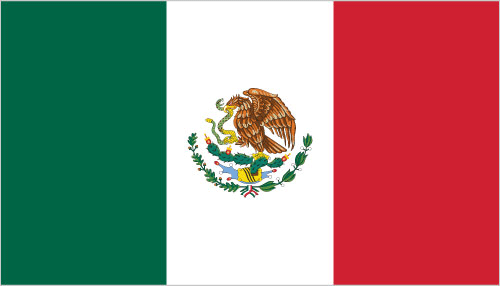
Mexico
Environmental, Social & Governance
1 . How is “ESG” in your jurisdiction defined in a corporate/commercial context, and what are its major elements?
There is no definition of ESG in the Mexican legal system, and direct references to ESG in laws and regulations are very limited. Regulation on ESG matters is scarce when compared to other jurisdictions (especially the US and the European Union).
Mexican companies are increasingly using ESG as a management tool to identify and mitigate material risks regarding environmental, social and governance matters, as well as to identify opportunities in those areas. Through an increased ESG focus, Mexican companies are gaining better access to commercial and financial opportunities, such as becoming preferred suppliers of clients with ESG commitments or accessing broader pools of ESG-conscious investors and lenders.
ESG matters can be found across multiple sources of the Mexican legal system. Recently, certain ESG-related matters have attracted special attention from regulators, companies, investors and other market participants, as they are “hot topics”. Among those matters are the environmental and social impact of projects (water availability, pollution, rights of indigenous communities, etc.), labor rights and working conditions, anti-corruption and money laundering prevention, as well as personal data protection and cybersecurity.
2 . What, if any, are the major laws/regulations in your jurisdiction specifically related to ESG?
ESG principles and obligations are not compiled or codified. ESG-related provisions can be found across numerous laws and regulations for the three levels of government (i.e., federal, local and municipal), the most relevant being the Federal Constitution, which serves as the basis for human rights, including the right to a clean environment and labor rights.
3 . What other laws/regulations in your jurisdiction touch on ESG themes?
Environmental matters, such as climate change, energy transition, use of natural resources and environmental impact of projects are included in, among others:
- the National Waters Law;
- the General Law of Ecological Equilibrium and Environmental Protection and its secondary regulations;
- the General Climate Change Law;
- the General Law on the Circular Economy;
- the Energy Transition Law; and
- the General Law for the Sustainable Forest Development.
Social matters, such as labor relations and working conditions, business and human rights and indigenous people’s rights are included in, among others:
- the Federal Labor Law and its secondary regulations;
- the National Security Law; and
- the National Institute of Indigenous People’s Law.
Governance matters are included in, among others:
- the General Law of Commercial Companies;
- the Securities Market Law;
- the General Law of the National Anti-corruption System;
- the Federal Criminal Code; and
- the Federal Tax Code.
Mexico is also a signatory to many international treaties on ESG-related subjects, such as human and labor rights. This is particularly relevant as, under Mexico’s constitutional law, international treaties are equivalent to federal law from a hierarchy standpoint.
Additionally, there are several “comply or explain” guidelines (soft law) that touch upon ESG-related matters. These include the Corporate Governance Code of Principles and Best Practices issued by the Business Coordinating Council, and the Sustainability Guide issued by the Mexican Stock Exchange. The Mexican Council for Sustainable Finance (formerly known as the Green Finance Advisory Council) has also issued the Green Bonds Principles.
In October 2020, Senator Germán Martínez (formerly, of Morena party) presented a comprehensive bill of law on corporate responsibility and due diligence obligations. The bill has had no legislative movement in Federal Congress.
4 . What, if any, litigation or enforcement activity has your jurisdiction seen related to ESG?
Litigation and enforcement of ESG-related matters have become more prevalent in the past five years. However, the level is minimal when compared to other jurisdictions where ESG frameworks are more developed, especially the European Union and the United States.
Recently, infrastructure and energy projects have been suspended or canceled based on environmental and social claims. Regarding energy projects, some have failed due to the lack of compliance with environmental and social impact assessments required by law, or due to irregular indigenous consultations that contravene the Indigenous and Tribal Peoples Convention. For example, recently, Constellation Brands (owner of the Corona beer brand in the US) located in the city of Mexicali (Baja California, Mexico), was forced to cancel the construction of a brewery due to concerns regarding the scarce availability of water and potential harm to local communities and the environment. Furthermore, federal courts often issue injunctions to prevent energy and infrastructure construction projects, on the grounds of developers’ alleged breaches of environmental laws, damage to cultural heritage or failure to comply with commitments made towards local communities during the approval process.
In early August 2022, 10 workers were trapped in a collapsed mine in the State of Coahuila. Among other relevant facts, the media, and the Mexican government, called attention to the miners’ lack of social security and the general conditions in which they were forced to perform their duties. Further, during the criminal investigations the miners’ incapacity to unionize was consistently cited. Foreign mining companies are currently under heavy scrutiny, and permits have been revoked on grounds of non-compliance with labor and administrative regulations. These sanctions are, in some cases, parallel to ongoing criminal investigations.
The labor chapter of the United States–Mexico–Canada Agreement (USMCA) is also a source of enforcement actions. For example, several manufacturing companies (including Panasonic and Tridonex) were recently investigated due to allegations made by workers in the border state of Tamaulipas (Mexico), arguing they were being denied their right to unionize. We expect that the labor chapter of the USMCA will continue to gain relevance and traction, to a great extent driven by US labor unions, which will result in further enforcement actions.
Private enforcement is also present and growing. It is increasingly common for financial institutions and companies to include ESG-related provisions in agreements entered into with customers and suppliers to ensure acknowledgement and compliance with certain standards. Breach of such provisions often results in termination and indemnification rights. These provisions are mostly related to anti-corruption, environmental performance and waste management, as well as labor conditions in the supply chain.
We have also seen private enforcement through post M&A litigation related to indemnification rights arising from the breach of ESG-related provisions by target companies.
5 . What are the major non-law/regulatory drivers of ESG trends and developments in your jurisdiction?
ESG in Mexico is primarily driven by market forces, not regulation.
The adoption of ESG strategies by Mexican and multinational companies with a presence in Mexico has been an important driver of trends and developments. In many cases, adoption is voluntary, and ESG is used as a management tool to mitigate risk and to improve the performance of a company. In other cases, the adoption of an ESG strategy derives from commitments with financial institutions or major clients, a reaction to competitors’ successful positioning as ESG-conscious firms or because they are subsidiaries of companies subject to ESG obligations in a different jurisdiction.
Financial institutions and institutional investors (especially those with global footprint) are important promoters of ESG. The Mexican Stock Exchange (BMV) and the Institutional Stock Exchange (BIVA), are also key promoters. For example, the BMV has created an ESG Index; and BIVA, has actively promoted the adoption of ESG principles among companies with listed securities, as well as the ESG-themed bond issuances. Moreover, BIVA recently launched "BIVASG", an information distribution tool that provides relevant and up-to-date information on methodologies, regulatory changes and securities transactions that comply with ESG principles. It also compiles ESG-related information of registered issuers in Mexico.
The Mexican Council for Sustainable Finance, consisting of representatives from the Mexican financial sector, seeks to promote the financing of projects that have a positive impact on sustainability, and is also a relevant stakeholder. They have been an active promoter of best practices in green and other types of sustainable finance in past years.
Non-binding principles and guidelines (soft laws) are also drivers of ESG trends in Mexico, including both domestic and international sources. Among the most relevant domestic sources are the Corporate Governance Code of Principles and Best Practices issued by the Business Coordinating Council, and the Sustainability Guide issued by the BMV. International instruments such as the Equator Principles and the Global Reporting Initiative (GRI) have influenced the design, implementation and reporting of ESG strategies and programs in Mexico.
Likewise, the Mexican financial regulators have recently published soft law guidelines to achieve a higher level of compliance with certain matters. For example, the Minimal Suggested Criteria to Hire Cloud Computing Services that Deal with Personal Data has been issued by the National Institute of Access to Information. The General Anti-Corruption Prosecutor’s Office is expected to publish the Anti-Corruption Guidelines in the near future.
6 . Are the laws, regulations and obligations highlighted in Question 2 primarily related to corporate disclosure?
Provisions related to corporate disclosure on ESG matters are extremely limited in Mexico.
However, companies that are listed as issuers on a stock exchange must issue annual reports covering certain basic ESG information, such as the following:
- activities in which they engage that could represent an environmental risk, and the measures that are being taken to mitigate it;
- corporate structure and processes, (e.g., standard information on shareholders and relevant officers); and
- the number of employees and percentage of unionized workers.
Additionally, private companies must report on certain ESG-related matters as a part of ordinary procedures and regulatory verifications, especially in labor and environmental matters. However, such disclosure is often non-public and addressed exclusively to the authorities, such as the Ministry of Environment and Natural Resources and the Ministry of Labor and Social Welfare.
7 . Which sectors are most impacted by ESG in your jurisdiction? How significant is ESG investment in your jurisdiction?
ESG investment, as well as green and sustainable finance, has been growing. For example, according to the Mexican Council for Sustainable Finance, the funds raised through the issuance of green and other types of sustainable bonds in 2022 (245 billion pesos or 12.2 billion dollars, approximately) was 30% higher than in 2021 (185 billion pesos or 9.2 billion dollars, approximately) and 24 times higher when compared to pre-pandemic levels (2019). Sovereign sustainable bonds issued by the Mexican government played an important role in 2022 (approximately 40% of the total funds raised).
ESG has impacted many sectors and industries in Mexico. Due to Mexico’s current social and political context, certain topics and industries have attracted more attention than others. In our experience, the sectors that have been most impacted by ESG in Mexico are as follows.
Retirement and pension funds
Certain asset managers, such as the Mexican retirement fund managers (AFOREs) and investment companies specialized in retirement funds (SIEFOREs), are required to disclose information on how they incorporate ESG criteria into their investment strategies, pursuant to regulations that came into effect in 2022 (i.e.,the General Provisions in Financial Matters for the Retirement Fund Managers, as amended).
Early in 2022, the Mexican Association of Retirement Funds Managers (AMAFORE) announced it is working on an ESG taxonomy that would apply to Mexican AFOREs and SEIEFOREs. This taxonomy is set to define certain ESG investment metrics, and to ensure that the investments selected by such AFOREs and SIEFOREs meet certain ESG criteria.
Banking and finance
The banking and finance industry has been one of the most active regarding ESG by promoting green and sustainable finance. It is increasingly common for banks to include provisions regarding certain ESG-related matters (e.g., anti-corruption and labor practices) in financing agreements. Foreign-owned banks operating in Mexico brought this practice to Mexico, but it has now been adopted by Mexican banks and other financial institutions, who are also incorporating ESG in their day-to-day operations.
Additionally, the Mexican Council for Sustainable Finance promotes green and sustainable finance in Mexico. This body has engaged in important efforts to issue guidelines (such as the Green Bonds Principles) that companies can use to achieve financing based on ESG criteria.
Infrastructure and energy
ESG has become increasingly relevant in infrastructure and energy projects, especially regarding environmental and social matters. Its impact is assessed by the three levels of government and by companies in all the phases of such projects (i.e., during the approval, construction and operation). It is especially relevant for companies engaging in this sector to design a robust ESG strategy, which should incorporate topics such as inclusion of local communities, protection of indigenous rights, lands and cultural heritage sites, environmental protection and anti-corruption.
Real estate
The real estate industry has also been impacted by ESG in the past few years, especially regarding environmental protection and social responsibility of project development. Real estate companies now tend to complete environmental and social impact studies prior to the commencement of projects, even if it is not mandatory. This often means obtaining certain certifications by third parties in relation with sustainability goals set up for a determined project. In practice, no major real estate project can be successfully accomplished without ensuring that local communities will benefit, whether through employment, renovation of natural resources or infrastructure.
Consumer goods
Consumer goods companies are paying special attention to environmental matters linked to their production process, such as the level of their emissions and carbon footprint, as well as waste and water management. These subjects are also garnering increased attention from regulators and other stakeholders. Additionally, the mitigation of risks related to product liability has received greater attention recently.
E-commerce
E-commerce is rapidly growing in Mexico and has also been impacted by ESG, especially in relation to governance for data protection and cybersecurity matters. Companies in this sector are highly exposed to risks related to the personal data they control, and are therefore engaging in efforts to design an efficient data protection strategy to mitigate risks.
8 . What are the trends in your jurisdiction regarding ESG governance?
Board attention to ESG-related matters has grown over the past few years. Under Mexican law, the board of directors is responsible for supervising a company’s risk management and ESG is ultimately about managing risk. It is common practice for the board to be supported by committees (e.g., an audit committee and a sustainability committee), entrusted with specific responsibilities regarding the ESG strategy.
Mexican companies frequently appoint their Chief Sustainability Officer (CSO) as ESG lead, in charge of coordinating internal efforts by multiple corporate functions. At the same time, the involvement of legal counsel (both internal and external) is becoming more relevant in the design, implementation and reporting of ESG initiatives. Governance is typically overseen by legal counsel, and good governance is required for an effective ESG program.
Supply chain liability is not sufficiently developed in Mexico. However, we have noticed recently that multinational business-to-business companies are increasingly requiring their suppliers to agree contractually to adopt ESG-related measures in their operations (e.g., product safety, environmental performance, labor and working conditions). This is also the case for subsidiaries of foreign companies, especially from certain countries of the European Union. Given Mexico’s importance in the global supply chain of many sectors (automotive, aeronautical, electronics and health care devices, for example), Mexican manufacturers are implementing ESG initiatives and reporting systems at an accelerated pace to meet client demands.
Finally, there is an increasing private litigation activity regarding breaches of ESG-related contractual obligations. Some of these cases are related to breaches of labor provisions (e.g., health and safety) contained in both the USMCA and Mexican law. We expect that these matters will become even more relevant in the upcoming years.
9 . To what extent are ESG ratings or ESG benchmarks relied upon in your jurisdiction?
ESG rating agencies
ESG rating agencies have presence in Mexico, and companies are increasingly referring to ESG ratings in their disclosure documents. Sistema B and SDG Action Manager show an increasing presence in Mexico. Both companies certify that companies implement business models that center on environmental, transparency, social and labor impact. Currently, more than 60 Mexican companies are certified B Companies. These companies include those specializing in services, finance and agriculture, among others.
The engagement of ESG ratings companies is also relevant, as they are used as part of the process to issue green and other types of sustainable bonds.
ESG benchmarks
The ESG Index, launched in 2020 by the BMV jointly with Standard & Poor’s is the best example of an ESG benchmark in Mexico. This index provides information regarding certain Mexican listed companies that comply with certain ESG metrics, and its objective is to promote ESG investing among the general public. Currently, this ESG Index is comprised of 29 companies from different sectors.
10 . What is the role of the private markets versus public markets in driving ESG developments in your jurisdiction?
Private companies
Mexican private companies that are actively designing and implementing ESG strategies in their processes are mostly doing so to mitigate potential risks. Likewise, they are engaging in these efforts to comply with requirements made by their clients, lenders and investors. To achieve this, they are committing to adopt positive environmental goals beyond what is required by the applicable legal provisions, and engaging in actions that have a positive social impact, such as adopting specific commitments in diversity and inclusion.
Public companies
ESG is becoming relevant item in the agenda of Mexican public companies’ boards, and boards are increasingly being asked to explain the company’s ESG position (or lack thereof).
Public companies are tackling ESG issues, as a good ESG record provides greater financing opportunities. Mexican public companies have controlling shareholders (or controlling groups) and governance issues have been a matter of special interest since the enactment of the amended Securities Market Law in late 2005. For example, since 2006 Mexican public companies must have board committees entrusted with corporate governance and audit functions, as well as appoint a percentage of independent directors on their board. Moreover, there are several “comply or explain” guidelines (soft law) included in the Corporate Governance Code of Principles and Best Practices issued by the Business Coordinating Council. However, stakeholders’ demands for increased diversity and inclusion at the board or top management level is a relatively new subject and have not been elevated to legal status.
Moreover, public companies are achieving a certain level of compliance based on the Sustainability Guide issued by the BMV. This guide provides voluntary guidelines and recommendations for Mexican public companies, based on diverse domestic and international sustainability frameworks.
Adopting ESG measures is promoted by market participants. For example, BIVA recently launched the Chief Sustainability Officer (CSO) Acceleration Program. This program seeks to promote the adoption of ESG criteria in listed companies by advising their ESG leaders in the design and adoption of their strategy. Likewise, the program seeks to provide general advice for companies to obtain investment through an ESG-related strategy.
11 . What are the major challenges in terms of compliance for companies under ESG obligations?
The first challenge is where to start and how to prioritize ESG issues. The starting point is to have a robust materiality analysis prepared with the support of an expert (internal or external). The outcome will provide information for the company to decide where to focus its efforts.
Defining the role of the board can also be challenging. Since the board is ultimately responsible for the company’s risk management, and ESG is a risk management tool, the board should approve the ESG strategy and supervise its implementation. It should also review the ESG disclosure by following a process similar to financial disclosure. However, to properly comply with their duties, board members need some basic understanding, and literacy, on ESG, and relevant training is an increasing concern.
Identifying which corporate area or department should coordinate ESG efforts within the company is important, and there is no one-size-fits all solution. The industry, whether it is heavily regulated or not, the maturity level of its functions and compliance systems, the regions where it operates, etc., are all relevant factors for a company to consider. In the past few years, the most common arrangement has been to entrust the Chief Sustainability Officer with this responsibility, although in-house lawyers and compliance officers are playing a more prominent role as a response to the increased attention of authorities to ESG matters. Governance is the basis of any effective ESG program and legal counsel typically oversee governance matters.
Deciding on which reporting framework to use is another factor. The multiplicity of frameworks and criteria, as well as the lack of standardization among them, are widely recognized as shortcomings of ESG. Although progress has been made for convergence at the global level, there is still much work to be done. If the company is not legally or contractually obligated to follow a specific framework, it is useful to inquire which ones are most common in its industry. Companies sometimes use a combination of two or more.
Identifying the right sources is also a common challenge. ESG is under development and can be a very broad concept; therefore, it is not easy to tell where it starts and ends. Companies need to identify the material obligations under domestic laws and regulations concerning environmental, social and governance matters. However, they should also track the public commitments (e.g., net zero by a certain date), contractual obligations and any requirements provided by foreign laws and regulations that apply to subsidiaries or vendors that are part of the supply chain. Additionally, companies should be aware of evolving industry standards and best practices.
Finally, developing a robust ESG compliance system is difficult. The right strategy, structure, policies and procedures, KPIs and controls for tracking, monitoring and reporting requires time and effort. Moreover, since ESG is a discipline under construction, the system requires constant fine-tuning and testing. A reliable system is critical for a strong ESG strategy.
12 . What information sources are most relevant for ESG considerations in your jurisdiction?
ESG in Mexico is still developing, and local sources of information for ESG matters are limited. Certain entities are currently engaging in efforts to make ESG information available. For example, “MexiCO2”, a BMV sponsored platform that works on the development of environmental markets for Mexico's transition to a low-carbon economy by helping companies and organizations identifying opportunities and structuring green projects. MexiCO2 was created in 2014 with the support of the Ministry of Environment and Natural Resources (SEMARNAT), the Embassy of the United Kingdom in Mexico, the National Institute of Ecology and Climate Change (INECC), the National Forestry Commission (CONAFOR) and the United Nations Environment Programme (UNEP).
Additionally, the ESG Index, launched in 2020 by the BMV jointly with Standard & Poor’s, provides information on listed companies that successfully operate with ESG criteria. Currently, this ESG Index is comprised of 29 companies from different sectors. In the words of BMV’s top management, “the ESG Index has become the most aspirational index” for Mexican public companies. Also, in February 2023, BIVA launched “BIVASG”, an information distribution tool that provides relevant and up-to-date information on methodologies, regulatory changes, and securities transactions, as well as ESG-related information of registered issuers in Mexico.
Moreover, the Mexican Council for Sustainable Finance regularly publishes relevant information regarding ESG-related financing, especially information related to the issuance of green and other types of sustainable bonds in Mexico.
13 . Has your jurisdiction developed a Taxonomy related to ESG?
There is no taxonomy related to ESG in Mexico. However, as noted in response to Question 7, in early 2022 the Mexican Association of Retirement Funds Managers (AMAFORE) announced it was working on an ESG taxonomy, which was expected to be completed and released in 2022. Even though the taxonomy has not been released, participants of the private and public sector continue engaged in the drafting and approval process.
Such taxonomy is set to apply to Mexican retirement fund managers (AFOREs) and investment companies specialized in retirement funds (SIEFOREs) and will provide guidelines to these entities regarding the selection of investment projects based on ESG criteria and to avoid greenwashing. Despite the taxonomy’s limited application to retirement fund managers only, it is expected to serve as a precedent for the discussion of wider ESG-related taxonomies for the Mexican market.
Moreover, several AFORES convened and coordinated by the AMAFORE, have drafted and approved a unified questionnaire that will be shared soon with companies listed in Mexico so that the AFOREs can obtain consistent information and simplify the process for the responding companies. This questionnaire contains 217 questions, including 46 environmental-related questions, 103 social-related questions and 68 governance-related questions.
14 . What does the future hold for ESG in your jurisdiction?
ESG is in its early stages in the Mexican market, as compared to other jurisdictions. However, it is safe to predict that the relevance of ESG will continue to grow.
Although ESG has received attention from the Mexican financial authorities, market forces will continue to be the primary driver of change. Both Mexican authorities and market participants will continue to pay close attention to regulatory developments in the European Union and the US for the development of domestic regulation.
Mexico is one of the countries with the highest number of international trade treaties, which makes it a very open economy. International trade, the increasing presence of global institutional investors and the international standards used by financing entities will continue to raise the bar on ESG matters for participants in the Mexican market.
We anticipate that topics such as climate change and environmental protection, anti-corruption and labor and working conditions will remain high on Mexico’s agenda.
One particular feature of the Mexican ESG landscape is the role of the Mexican government as a driving force. For example, Mexico’s government has been one of the largest and most successful issuers of ESG-themed bonds, which combine energy, environmental and infrastructure goals with social advancement causes.
Additionally, in 2018 the General Law on Climate Change was reformed to include (among other things) an obligation for the Mexican government to create an Emissions Trading System (ETS) to support the development of clean energy projects. Further, the government also supports the current implementation of voluntary carbon offsets with the participation of multiple private stakeholders, mainly through standard verification processes such as Verra or Gold Standard.
The implementation of an ETS and voluntary carbon markets is one of the Mexican government’s solutions to achieve the goals of the Paris Agreement. Currently, the ETS is in a test stage: the only participants are facilities that carry out activities in the energy and industry sectors with annual emissions equal to or greater than 100,000 tons of direct carbon dioxide emissions. It is expected that the ETS will become generally operative in 2023.
It is safe to predict that in the coming years, the framework of hard and soft law regarding ESG-related matters will continue to grow in Mexico. This will lead to more companies implementing and adopting ESG strategies and criteria in their operations and day-to-day business.
We expect ESG activism to rise in Mexico, yet differently from the US or the UK. Most (if not all) Mexican public companies have controlling shareholders or groups, so public campaigns by activist shareholders are less effective and, therefore, uncommon. Institutional investors typically have conversations regarding ESG-related matters (including questions or concerns) with the investor relations department, rather than with companies’ top management (e.g., CEO, CFO, CSO) or board members. We expect that these global and domestic institutional investors (investment funds, insurance funds and pension funds) will continue to push Mexican companies to further incorporate ESG-related metrics into their operations and disclosure documents.
Moreover, social activism by local leaders and communities will continue to play a key role in shaping the ESG landscape, especially regarding water availability, pollution and other forms of environmental and social impact.
All the above means that the bar will be raised for managers and directors of Mexican companies, and their roles will become more complex and demanding.
3-6 PQE Corporate M&A Associate
Job location: London
Projects/Energy Associate
Job location: London
3 PQE Banking and Finance Associate, Jersey
Job location: Jersey


 Diego Sierra
Diego Sierra Edmond Frederic Grieger
Edmond Frederic Grieger Elias Jalife
Elias Jalife Luis Burgueño
Luis Burgueño Pablo Jiménez
Pablo Jiménez.jpg)

